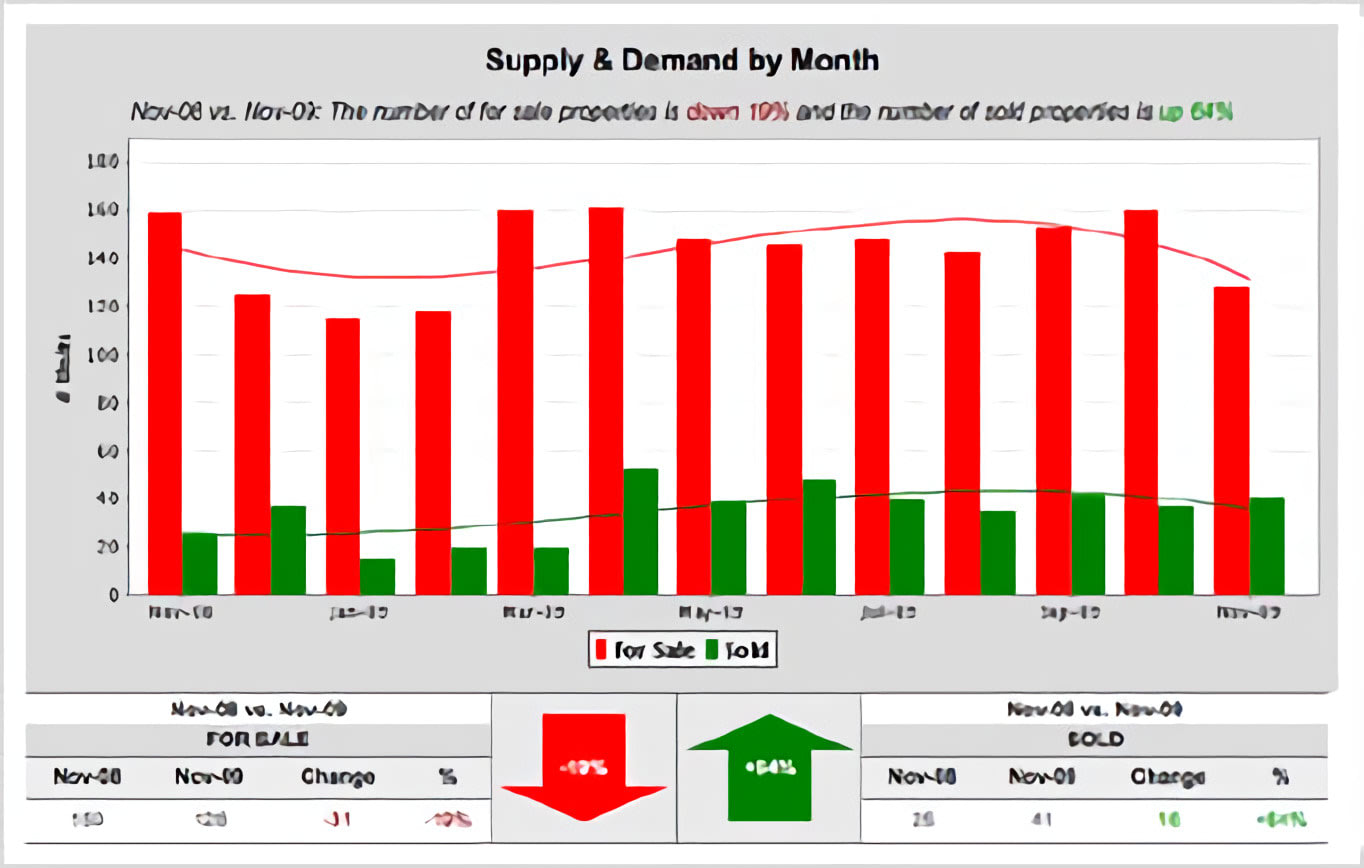The Economics Behind the Sale of Your Home
Both Katie and Mark's University of California at Davis educations were grounded in economics. We have the knowledge to interpret the ins and outs of the real estate markets in regard to your specific situation. We utilize absorption rates and project how they can affect the time horizons of your next sale. Our sales strategy is grounded in mechanics and not based on feelings or guesses.
Our economic backgrounds make us more than just sales agents. It produces the space for accounting advice. It gives us the ability to produce unique pricing, marketing, and sales strategies that get our homes sold faster and maximize our sales price.
All of our sales customers receive frequent supply, demand, days on market, and absorption rate data throughout their sales process. We format all of our data into valuable charts that help our customers distinguish the past market trends and illuminate a strategy for your specific situation. We know that the real estate markets are in constant flux. We have the data and background to help you adjust your strategy and assure you of the highest price possible.
Below are 4 fundamental economic principles that establish how buyers make purchase decisions. We use these principles when designing pricing, marketing, and sales strategies for our customers. This assures that our customers get the highest sales prices possible.
4 Fundamental Economic Principles That Drive Buyer Decisions
- Buyers always face tradeoffs.
- There are always other sellers in the marketplace when you list your home for sale. Buyers look at all the tradeoffs that exist between listings when considering writing offers. This means your home competes with all the other homes that are available.
- The "cost" of something is what buyers are willing to give up to get it.
- Buyers always set the sales price of your home. This is because buyers give up currency, and take on future obligations when buying your home.
- Sellers set the asking or listed value of their homes. This can be a totally different value than what buyers are willing to pay.
- Competition between various buyers is the only force that can generate offers that exceed the listed price of your home.
- Buyers "think" about the marginal value.
- If all houses were exactly the same then buyers would have little to think about. Because all properties are unique, buyers concentrate on the differences between homes and think little about the similarities.
- Buyers respond to incentives.
- Incentives stimulate activity from buyers. The Federal Government, other competitive sellers and banks can offer incentives that affect the value of your property.




















